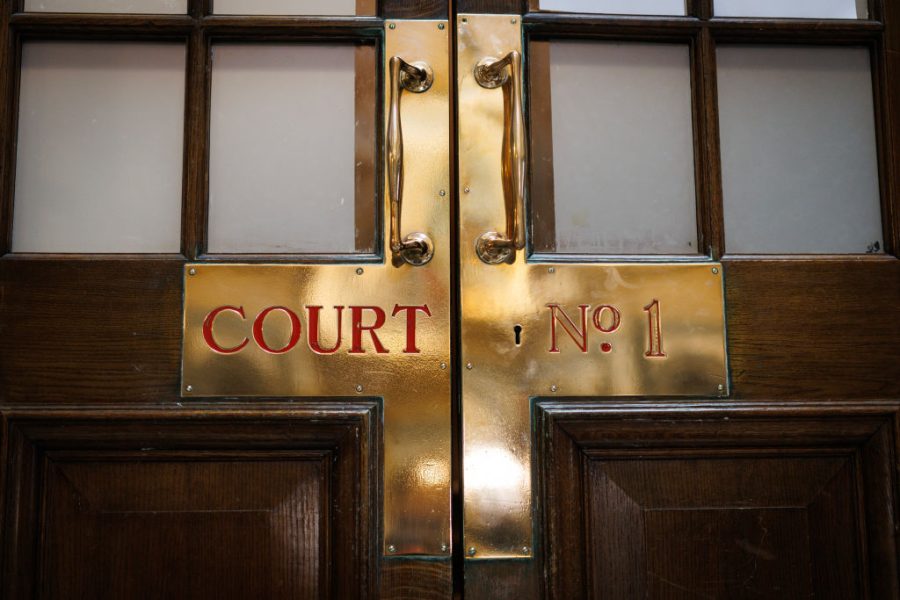The disconnect between actions and consequences that bedevils this country’s justice system suffered a modest reversal today. The government has announced that legislation will be introduced to compel convicted offenders to appear before the judge at a sentencing hearing or face sanctions. This honours a promise made by Keir Starmer’s predecessor Rishi Sunak after he met the parents of Olivia Pratt-Korbel, a nine-year-old girl murdered by Thomas Cashman last year. Cashman refused to attend the court in an act of utter cowardice.
Will these new powers be used? That is a question with a political answer.
The fact that a few additional days in prison on top of a 42-year minimum sentence or no access to the gym would only have a symbolic effect in this case misses the point. That Olivia’s parents were denied the chance to look the man who destroyed their lives in the eyes as he was sent down has far greater significance. This is the part of the trial where the wishes and needs of victims should be paramount. The verdict has been passed. The psychological closure of the sentence can provide at least a semblance of balance. This is where retribution lies, after all the necessarily sterile arguments over evidence is finished.
Yet retribution as a concept has become almost totally eroded in the criminal justice system. It is supplanted by progressive ideologies that want to ignore the sharp end of ‘just desserts’ to enfeeble punishment and deterrence still further. The act of sentencing is not just another distasteful byproduct of environmental harm to the assailant; it is where the majesty of the law is seated. But the power of judges to compel the guilty to stand before them has been withered on the vine.
This is an important point. Today’s announcement merely gives political clout to powers already vested in the judiciary but almost never used. A judge may already make an order for any person to appear before them. The trial judge at the sentencing of Axel Rudakubana, the Southport killer, could have compelled him to be brought from hiding in his cell before the court, filled with the grieving parents of the children he murdered to face the ultimate consequences. He did not. Today’s announcement merely enhances yet another existing rule. This is a depressingly familiar scenario across public life: we have the levers, but the cables are missing.
Rudakubana’s cowardice throws up one of the most common objections to forcing convicted offenders to attend court. Commentators have argued, reasonably, that some would use the occasion to traumatise victims further. Rudakubana, for example, was removed from court twice during his trial for disruptive grandstanding behaviour.
How he would have behaved during his sentencing is anyone’s guess. But again, this misses the point. What is happening here is simply the return of power to the judge, not the perpetrator, to decide if and how those convicted should be present at the point of sentence. The guilty must be clear that reasonable force can and will be used to enforce the judge’s order. The tail will no longer wag the dog.
Away from the high-profile cases, courts throughout the land will convict perpetrators for crimes of lesser gravity that still traumatise lives and cause untold suffering. The imposition of penalties that include up to two extra years in prison for aggravated refusal to attend sentencing will carry extra weight for those facing lighter penalties. They can no longer choose not to face the people they have damaged without fear of sanction.
Sentencing hearings often include victim impact statements where those harmed have a chance to face their assailants and explain how the offence has affected them. Research shows that this can be a powerful act of closure. For once, the victim is central to a process that, by necessity, has been blind to emotion up to that point. Of course, some victims may not want to be part of this exercise at all. They will be free to refuse to attend, naturally. But that freedom cannot be extended to guilty perpetrators simply because of their personal inadequacies.
As with all new laws, the litmus test is not their existence but their enforcement. Judges have rightly come under scrutiny recently in relation to daft and lenient sentencing. Will these new powers be used? That is a question with a political answer. The Justice Secretary Shabana Mahmood must ensure via the Lord Chancellor, the judges’ boss, that this legislation is actually used and that sanctions are imposed. We already live in a low-trust society. Confidence in the justice system is paramount to holding the line. ‘Olivia’s Law’ must be done and seen to be done.








Comments